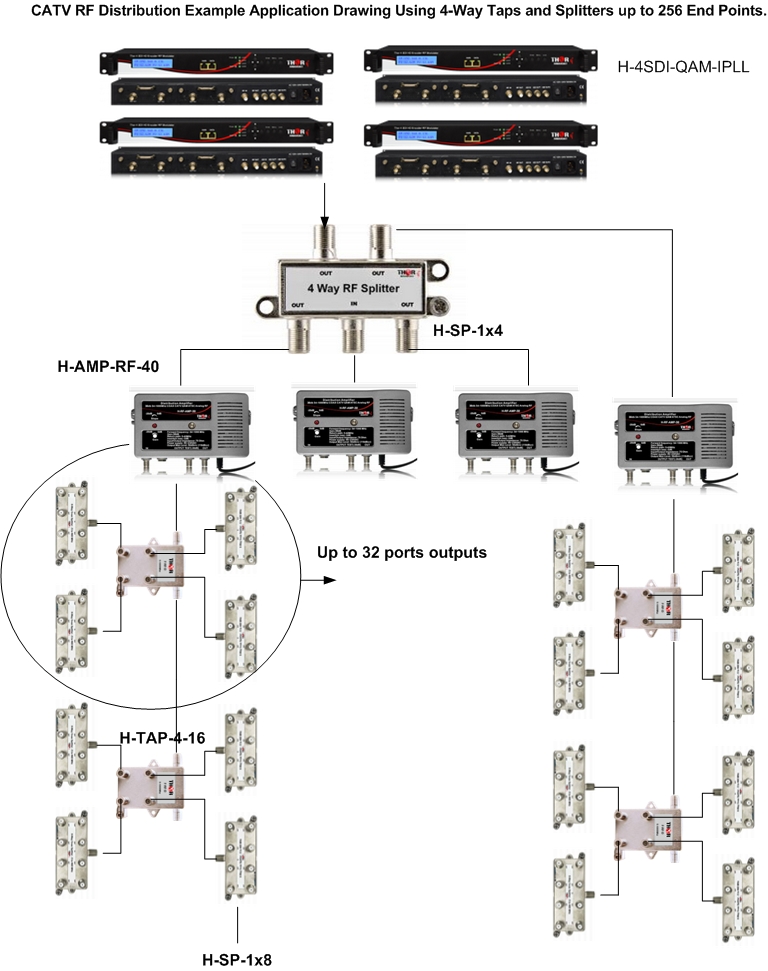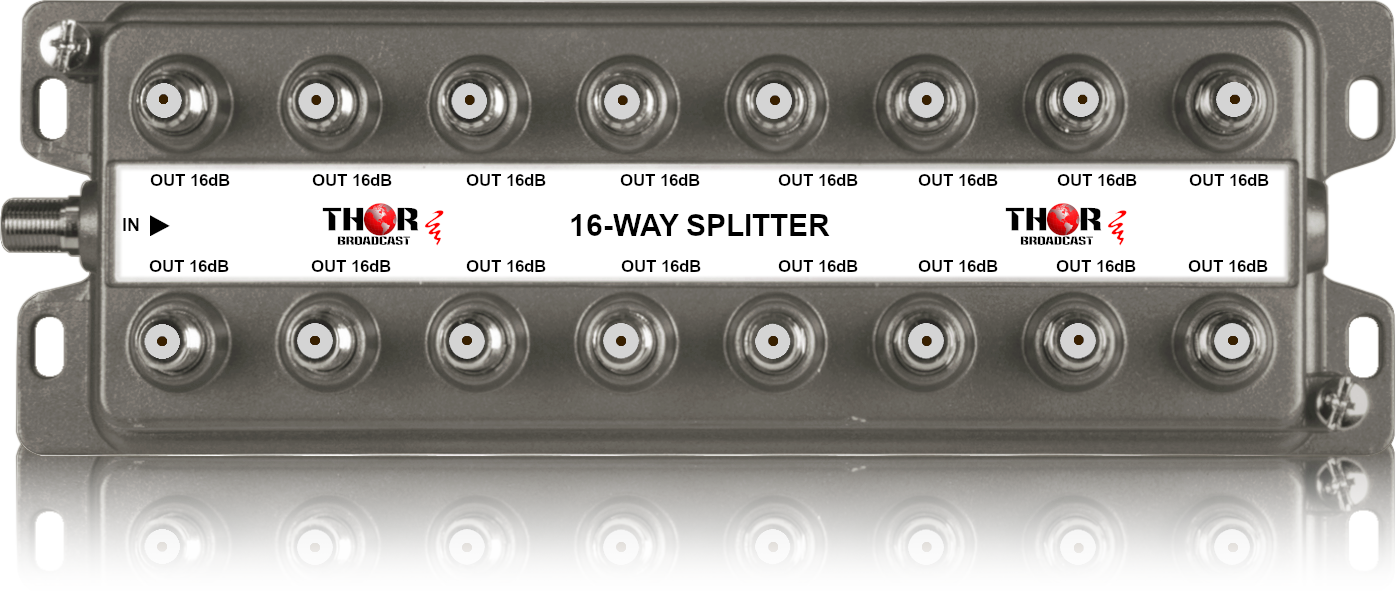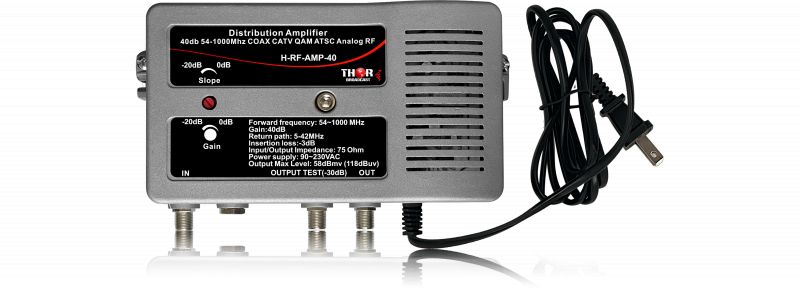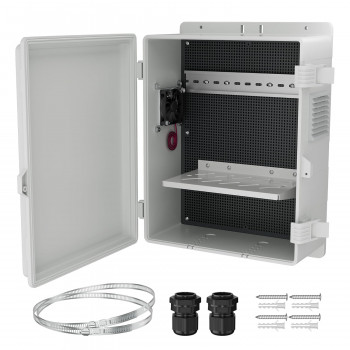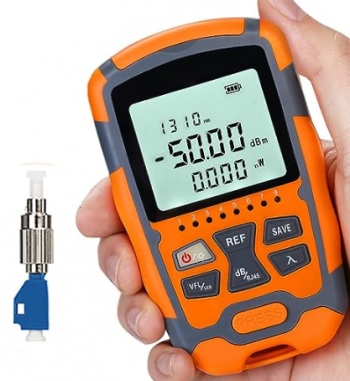Answer: You can use different techniques to distribute a signal to 20 TVs depending on their locations. The Petit Modulator outputs 30 dBmV RF power. The lowest level a TV can detect is 0 dBmV. Different splitters have different losses, called insertion loss. For example, the H-SP-1x2 has a 4.5 dB loss, the 1x4 has a 7.5 dB loss, the 1x8 has an 11 dB loss, the 1x12 has a 16 dB loss, the 1x16 has a 16 dB loss, and the 1x24 has a 21 dB loss.
Knowing this, you can use just 1x24 splitters and run individual coax cables, or you can use a combination of splitters and calculate the total loss to ensure it is less than 30 dB. For example, you can use a 1x2 splitter first, then run two coax cables to two 1x16 splitters, or use a 1x4 splitter with four 1x8 splitters. This way, you create zones and save on coaxial cables.
You can also use a combination of splitters and taps. A tap has an input, a drop, and an output. It has a small insertion loss between the input and output, and the drop is dedicated for TV connections. Taps allow cascading, which means you can use a 1x2 tap for each TV and cascade the output to another tap. This method allows cascading and saves on the amount of coaxial cables you will use.
The most important thing is to ensure you do not lose more than 30 dB. If you need more than 30 dB, you would need to use amplifiers in your system.
link to the RF amlifiers
https://thorbroadcast.com/product/40db-bi-directional-distribution-amplifier-54-1000mhz-coax-catv-qam-atsc-analog-8230.html

 ES
ES




